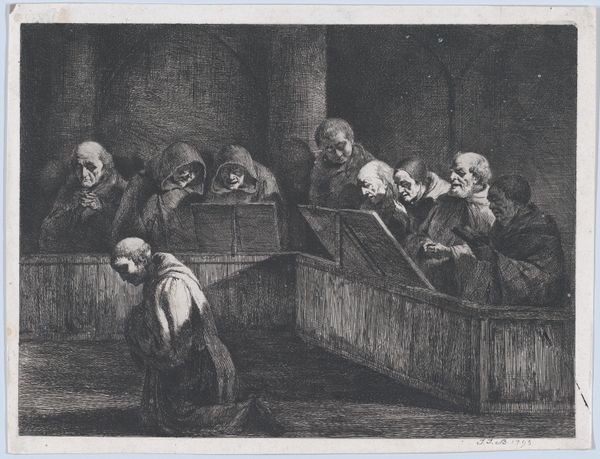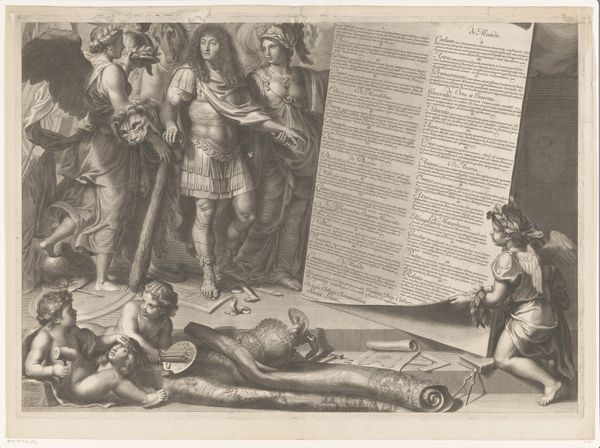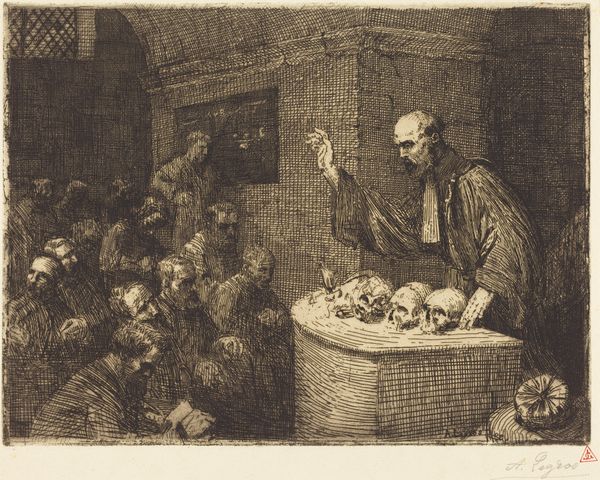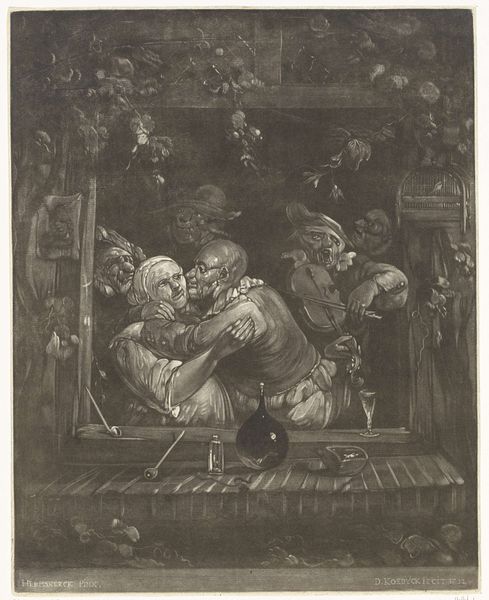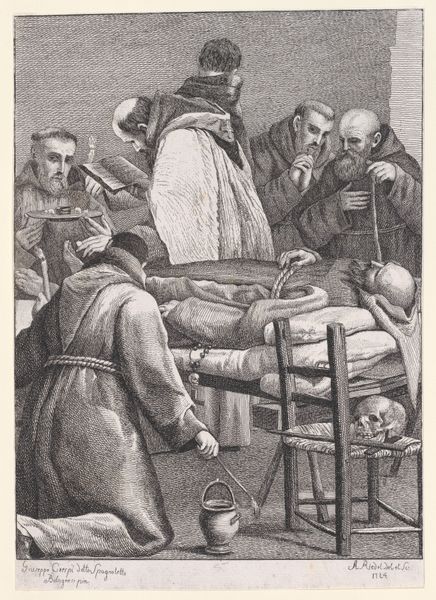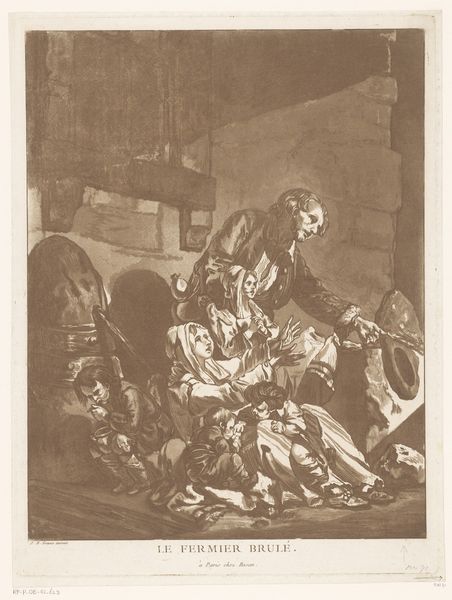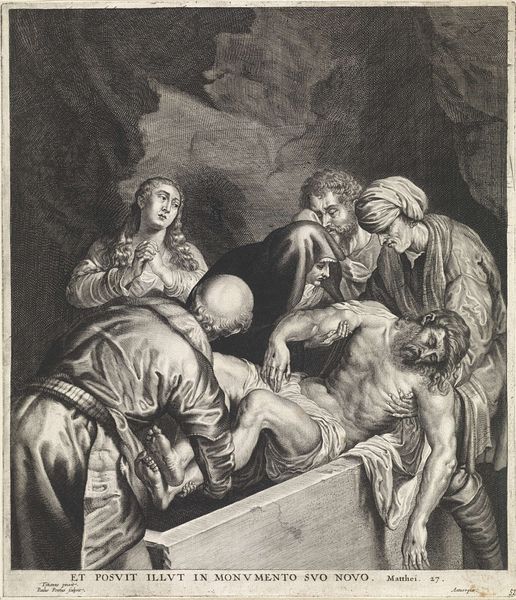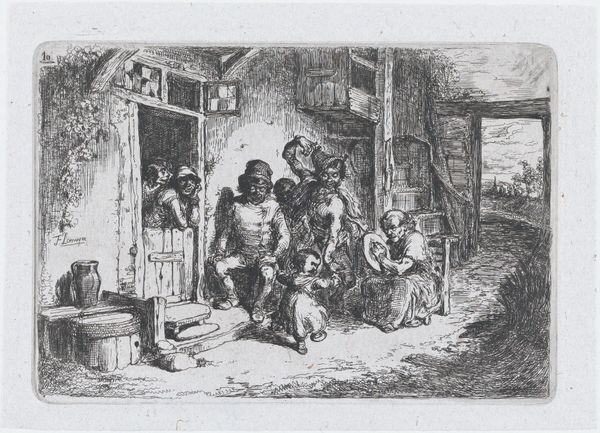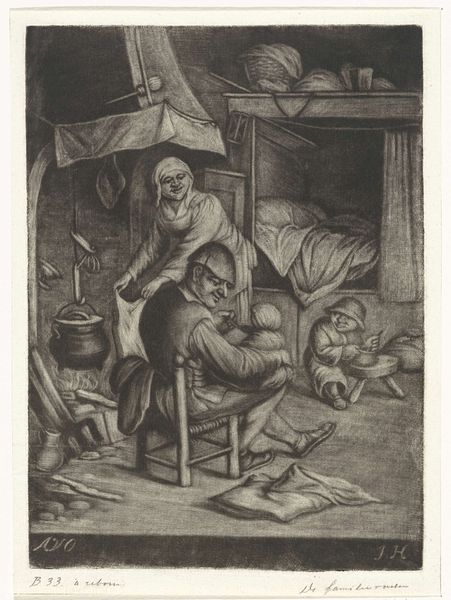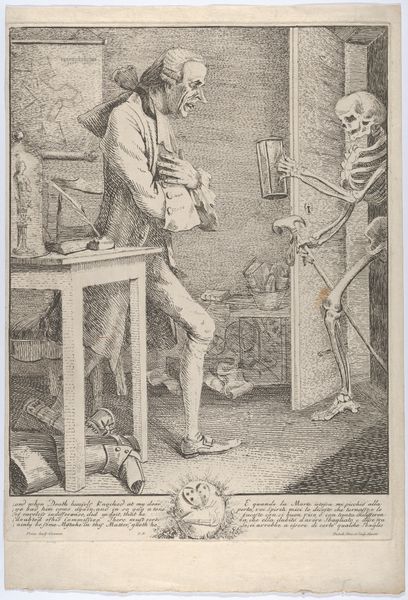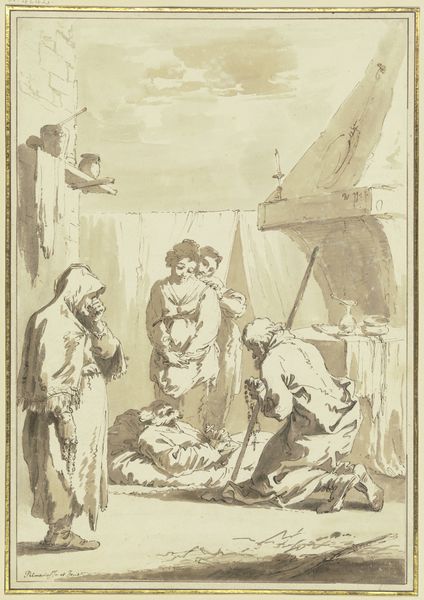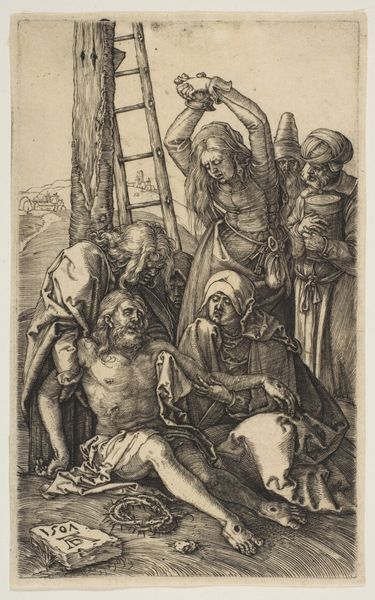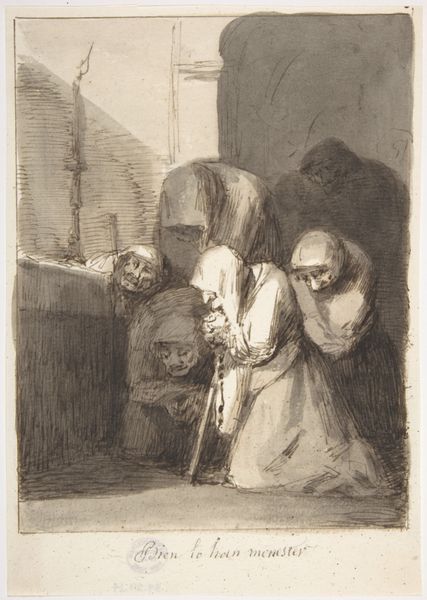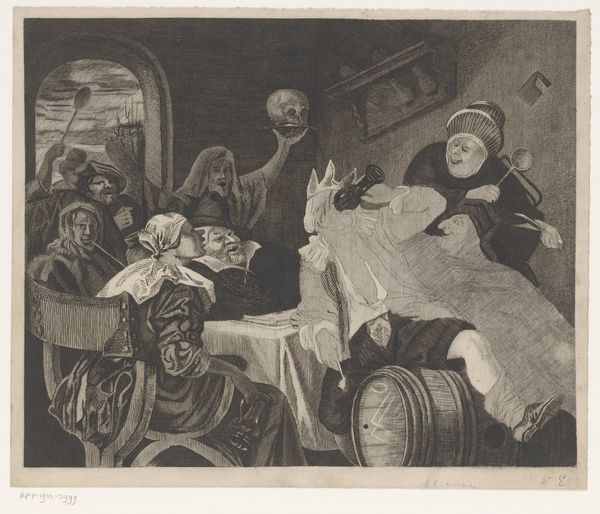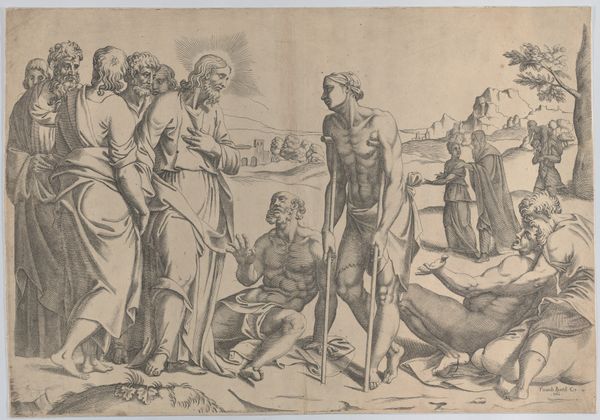
photography, gelatin-silver-print
#
portrait
#
photography
#
gelatin-silver-print
#
islamic-art
#
genre-painting
#
statue
Dimensions: height 250 mm, width 190 mm, height 250 mm, width 191 mm
Copyright: Rijks Museum: Open Domain
This albumen silver print showing the interior of the Capuchin Crypt in Palermo, Italy, was made by Giorgio Sommer in the 19th Century. It depicts mummified bodies, some hanging on walls and others laid out on shelves. This image is fascinating because it shows us a peculiar cultural phenomenon and a specific institutional practice of the Capuchin order. The Capuchin monks mummified bodies as a way to preserve and honor the dead, and also as a form of religious contemplation, their intention was not to mock death but to overcome it. This photograph documents a funerary practice that reflects Sicilian culture’s unique relationship with death. It raises questions about social class, as the process was expensive and initially reserved for monks and wealthy patrons. As historians, we might look into records of the Capuchin monastery to see how this practice evolved over time and what it tells us about the values and beliefs of 19th century Sicilian society.
Comments
No comments
Be the first to comment and join the conversation on the ultimate creative platform.
